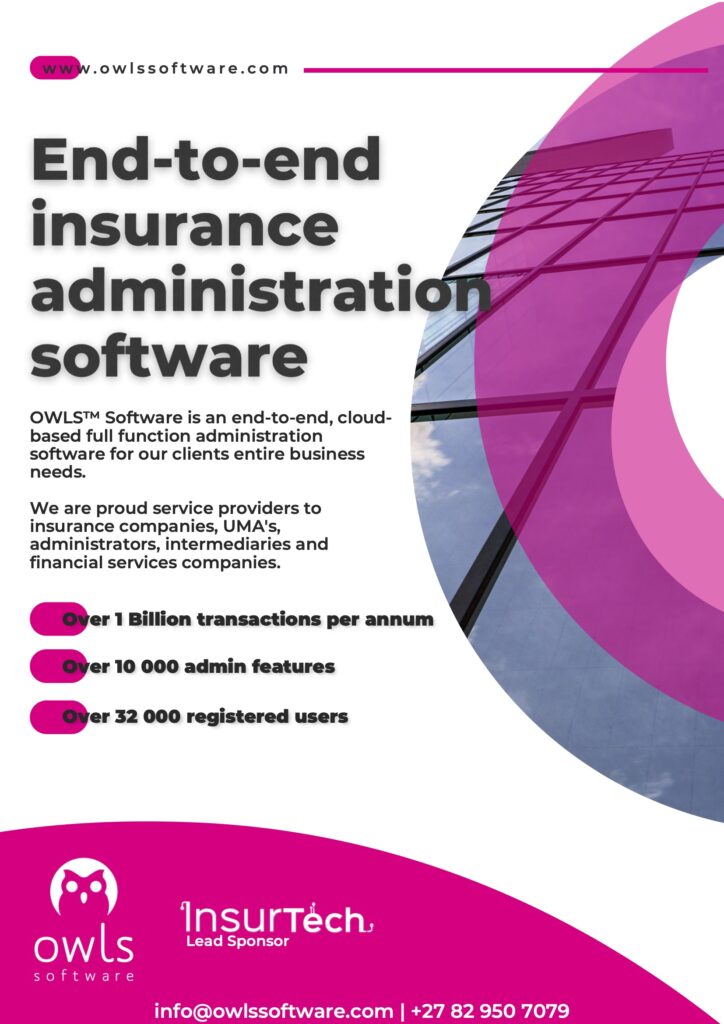Karen Rimmer, Head of Distribution at PSG Insure
The COVID-19 pandemic, a series of natural disasters, social instability and volatile market forces have all contributed to the development of a ‘hard’ insurance market.

The hard market has necessitated stricter underwriting processes and criteria for insurers and has resulted in it being more important than ever for South Africans to understand the terms and conditions of their insurance policies to remain compliant and covered.
Understanding the terms and conditions of an insurance policy is important for several reasons. Primarily, it allows policyholders to make informed decisions about their insurance cover based on a clear overview of what is included and excluded.
Secondly, it helps the insured to identify any potential coverage gaps and to take the appropriate measures to prevent unnecessary losses. Most importantly, knowing and understanding the fine print can go a long way in streamlining the claims process, and preventing challenges at claims stage.
It’s imperative for advisers to ensure clients are fully aware of how their policy works. This is an important part of good financial planning and a vital part of futureproofing them against unforeseen issues and events.
Commonly overlooked policy conditions
Insurance policies are legally binding contracts, typically tailored to each client’s unique risk profile and circumstances. There are however a few standard terms and conditions that are important to note and that outline the rights, responsibilities, and obligations of both the insurance company and the policyholder.
One of the most overlooked conditions is that if a client misrepresents or withholds relevant information when applying for insurance, it may not only lead to claims being repudiated, but it could also result in the policy being voided.
Insured parties also need to pay close attention to the monthly cost of the premium and on which day of the month payment becomes due. Failure to pay timeously every month, could lead to complications during the claims process. For this reason, if the insured anticipates that they may default on a future payment, it’s important for them to inform their insurer of this ahead of time to avoid unnecessary issues.

OWLS™ Insurance Software
An end-to-end, cloud-based full full-function administration software for our clients entire business needs.
We are proud service providers to insurance companies, UMA’s, administrators, intermediaries and financial services companies.
Apart from the cover that an insurance policy provides, the agreement may also require the insured to put certain additional safety measures in place and to take reasonable steps to safeguard their property to prevent a claim from being repudiated. This could include warranties or endorsements on certain assets that apply in the event of a claim.
For example, a warranty in a home insurance policy might require the installation of a security system such as CCTV cameras, electric fencing and a fully operational alarm system. In the event of a burglary, if the policyholder has neglected to install the system or failed to ensure that it always remained fully operational, the insurer may reject the claim due to the breach of the warranty.
Another important concept is for clients to be aware of the condition of average or the ‘average clause,’ which comes into play if assets, such as a building or household contents are underinsured. If a policyholder under-declares the replacement value of their household contents, in the event of a claim, the condition of average may be applied. Consider a hypothetical scenario where the declared value of household contents policy is R100 000, but the actual value is found to be R200 000.
The client in this case is underinsured by 50%. Should a fire result in the destruction of the household’s contents and a claim is submitted, the payout will be calculated on the value of the sum Insured, which was only 50%. This means that the client will only be paid out R100 000 for the total value of R200 000. These calculations will be worked out differently, depending by how much a client is underinsured by – and if they are claiming for a partial or total loss.
Talk to the experts
In future, with the impact of global phenomena such as climate change becoming more apparent, as well as the ongoing effects of load shedding, insurers will be compelled to institute more detailed terms and conditions for insurable risks. This is where insurance advisers can play an important role in demystifying the complexities of insurance policies for their clients.
Advisers are experts at breaking down intricate terms and conditions, ensuring that clients fully understand what they are covered for and what their responsibilities are in managing select risks. The expertise of advisers goes beyond just extensive product knowledge.
They can also foster an ongoing dialogue and relationship, encouraging clients to ask questions and get clarification as their lives evolve and their insurance needs change.

